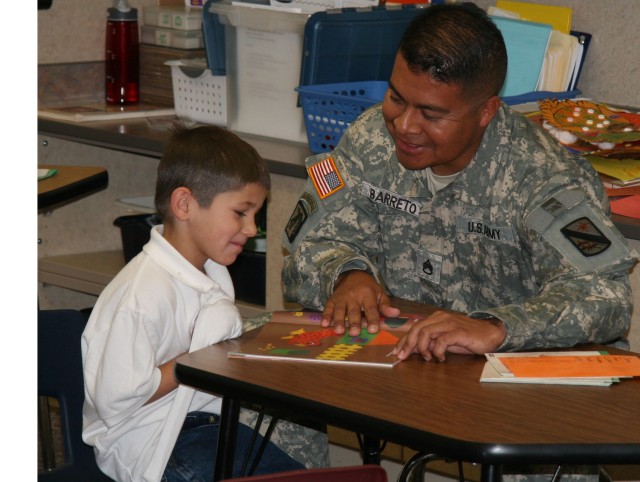Fort Carson, Colo. -- While serving as a maintenance repairer with the Army in Iraq in 2006, Staff Sgt. Carlos Barreto volunteered to be a part of a personal security team. The duty promised to be more hazardous than what Barreto had been used to while in Iraq, but volunteering, he said, was his nature and he thought he could contribute to the team.
The security team traveled with a regional commander to various forward operating bases in Iraq. En route to one of those bases, the vehicle Barreto was driving was hit with an improvised explosive device. Somehow, the occupants, including Barreto, escaped serious injury - or so they thought.
Barreto was hit in the back of the neck with shrapnel and was physically shaken up in the attack. More notably, he suffered what doctors would later diagnose as a traumatic brain injury. From that point forward, Barreto now recalls he had difficulty with short-term memory, multi-tasking and even reasoning. His doctors also diagnosed him with post-traumatic stress disorder once he was back in the States.
Tammy Barreto recalls that her husband of 10 years was also feeling depressed because he was not contributing to the Army as a Soldier.
"When you're in the military in Iraq, you're doing an important job - something that matters," Tammy said. "When you come back here with an injury, you don't feel that same sense of importance anymore because your life is all about going to doctor's appointments and your friends back in Iraq are doing the important stuff."
As a rehabilitating wounded warrior with the Warrior Transition Unit on Fort Carson, Carlos was required to either attend classes at a local college or find a job on post. Worried that he would not be successful working toward a degree due to his impairment, Carlos decided to look for a part-time position on post.
Tammy had been a volunteer teacher's aide in her son's kindergarten class at Patriot Elementary on post and suggested that Carlos look into volunteering there as well. Helping out in his son's class turned out to be a perfect fit for Carlos. When his son moved up to Denise Countryman's first grade class, Carlos went with him.
Tammy saw a positive change in Carlos' demeanor soon after he started as a teacher's aide. She recalls that he started to feel needed and appreciated. He had a mission again, although he still had a lot of healing to do. Although she didn't know Carlos previous to his injury, Countryman saw a change in him, too.
"In the beginning," Countryman said, "I didn't realize the extent of his injury. I treated him like any of the other parent volunteers. I remember giving him a stack of stuff and saying 'here you go' and he would smile at me and walk off. But he didn't have the short-term memory and he couldn't remember all that I had assigned him to do, which frustrated him."
Countryman soon realized that Carlos' difficulty with his teacher's aide assignments were the outward signs of his otherwise hidden TBI. In the months since he started as an aide in her class, however, his cognitive skills have greatly improved.
"I think his memory and his retention of step-by-step procedures is coming back to him," Countryman said. "Things are making sense to him. Now he comes in and knows what to do and how to do it all. In that respect, I see huge growth in him."
Countryman added that Carlos does a little bit of everything in the classroom.
"He does everything from reading with kids to making copies to working with students one-on-one. And with 24 kids, the help is very welcome."
While he heals, Carlos wants to finish out the school year helping as an aide in Countryman's first grade class. In a few years, after he has put his Army career behind him for good, Carlos would like to return to the classroom and somehow be involved with teaching children. "I love being able to help out in the class," he said.


Social Sharing